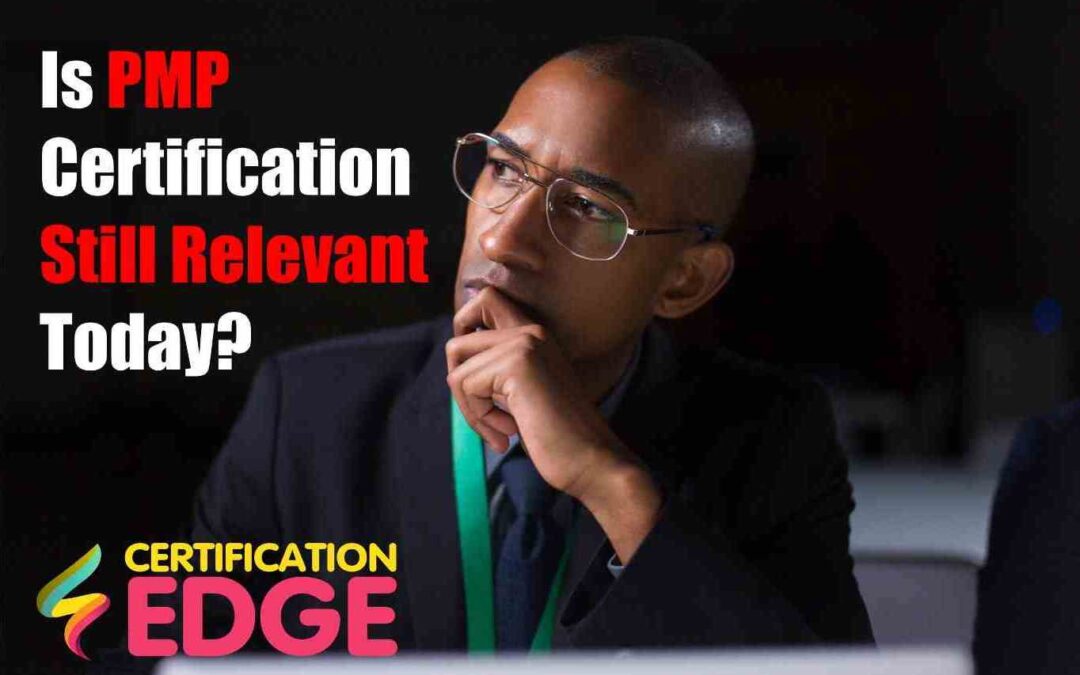Are you considering upgrading your project management skill or want to know where to get PMP certification? If so, you’re likely wondering if the PMP training is still relevant in today’s job market. The Project Management Professional (PMP) credential is one of the most highly respected certifications in the project management field. In this blog post, we will explore the current relevance of PMP certification and how it can help you in your project management career.
The History of the PMP
The Project Management Professional (PMP) certification is one of the most recognized and respected credentials in the project management field. PMP certification was introduced by the Project Management Institute (PMI) in 1984 and has since become the standard for professional project managers across the globe to demonstrate their professionalism. But, is PMP certification still relevant today?
The answer is a resounding “yes”. Over the years, PMP has evolved with the needs of employers and job seekers alike, ensuring that it is still relevant to today’s project management industry. The PMP certification provides a comprehensive framework for understanding the principles of project management and applying them in a variety of contexts. As such, it is an essential part of any professional project manager’s skill set. PMP equips candidates with the knowledge to stand out from their peers easily on the job.
The Relevance of PMP Certification to Project Managers
The Project Management Professional (PMP) certification is still relevant in today’s project management world. The PMP certification is a global standard that has been around since the mid-1990s and is recognized by employers across all industries. The certification proves that you have the skills, experience, and knowledge to successfully manage projects in an organization.
The PMP is a valuable credential for project managers who are looking to advance their careers or gain more recognition in the workplace. PMP-certified professionals are also better positioned to negotiate higher salaries and improved job opportunities. Companies recognize the importance of having skilled, experienced, and certified project managers, which is why many organizations require their project managers to be PMP certified. As a matter of fact, futuristic organizations sponsor the project managers to take the PMP certification to help drive better growth and mitigate risks.
Despite its long history, the PMP certification is constantly evolving to meet the changing needs of the business world. As technology advances, the PMP certification is continually updated with new courses, content and exams to stay current with the industry. As such, it remains an important credential for project managers and professionals who want to demonstrate their competency in project management.
To answer the question of whether the PMP certification is still relevant, the answer is a resounding yes! It is an invaluable asset for project managers and professionals alike, as it provides a benchmark of excellence in project management. In addition, its continuous updates ensure that certified professionals remain knowledgeable and up-to-date on the latest best practices in the field. This makes certified project managers more efficient than their non-certified counterparts.
Where to Get PMP Certification
There is no doubt as to the relevance of PMP to project managers and organizations in Nigeria and across the globe. As the leading project management certification approved provider in Nigeria, we have trained thousands of professionals and help them pass the PMP on their very first attempt.
There are several avenues for obtaining the PMP certification. You can take Certification Edge online courses or attend in-person classes. You can even self-study with books and materials from the Project Management Institute (PMI) and our innovative and intuitive learning management system with faculty interactive videos to help understand topics faster. For organizations, you can schedule a custom training section for your project managers hoping to get the PMP certification.
To obtain the PMP certification, you must first meet certain requirements. These include a combination of education and work experience, along with passing a CBT online exam. The exam covers topics such as initiating, planning, executing, monitoring, controlling, and closing a project. Once you pass the exam, you become a certified PMP. If you have any questions regarding how to take the PMP exam and pass on your very first try, speak to our certification advisory team
The best way to stay on top of the PMP is to make sure you’re up-to-date with changes to the standard. PMI regularly releases new guidelines and updates, so it’s important to stay informed. Additionally, there are various resources available that can help you stay informed and up-to-date with PMP.
Overall, the PMP certification is still relevant and a great way to demonstrate your project management skills. With the right training via our robust PMP preparatory classes, you can become a certified PMP which often comes with a salary hike and a better edge in your career.

Recent Comments